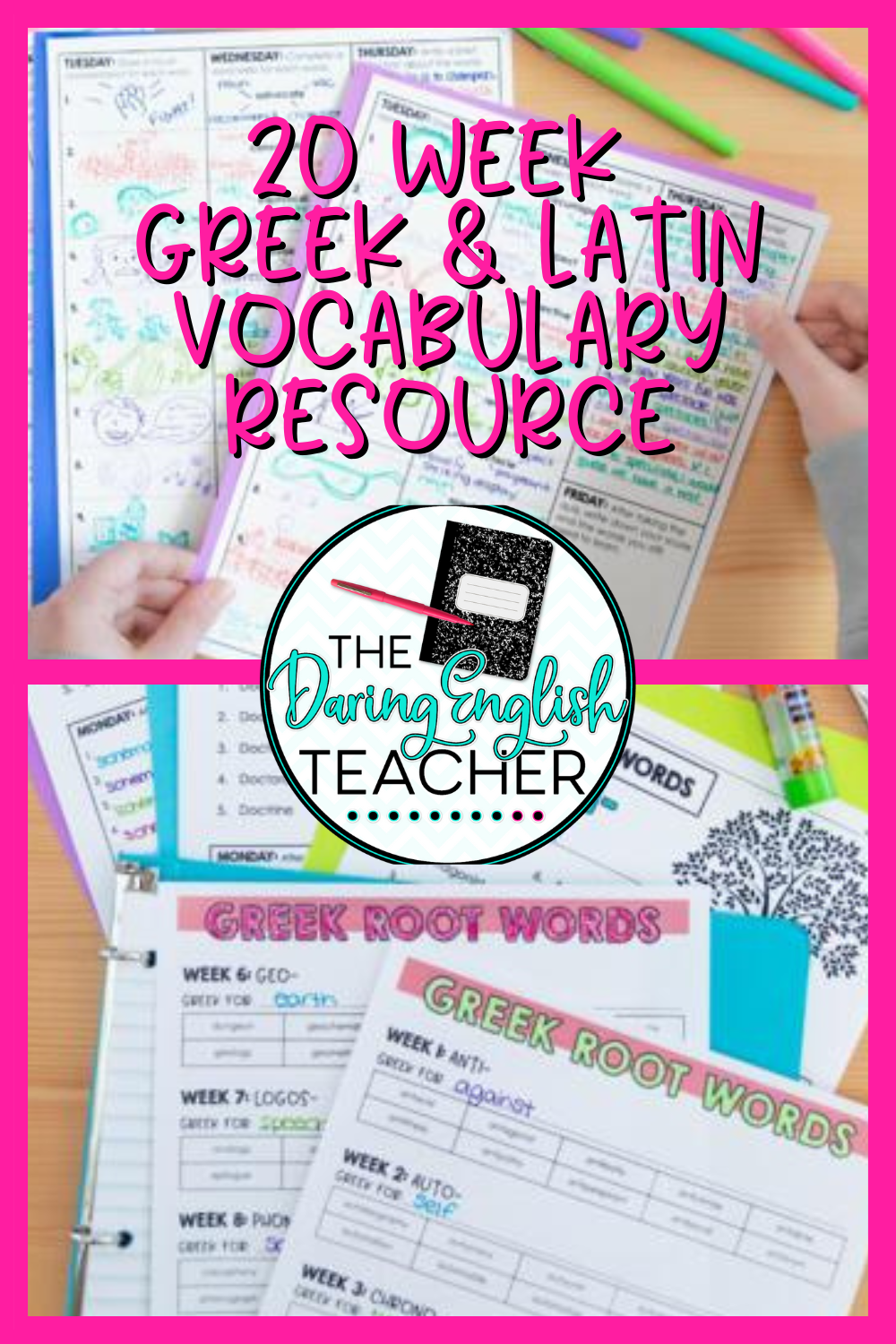I can hear it now. One student defiantly raises a hand as I begin teaching Greek and Latin root words. Before I can even begin explaining the benefits, the student asks, “Why are we learning about this in English class?” Next time you have a student asking why they need to study roots and vocabulary from Greek and Latin, have this list on hand.
3 Reasons for Teaching Greek and Latin Root Words
1. Greek and Latin are foundational 
You will be hard-pressed to find vocabulary without influence from Greek or Latin. The truth is, these “ancient” languages heavily influence our modern languages (particularly the Romantic ones). In fact, students who hope to learn other languages, especially Romantic ones, would do well to focus on building vocabulary in English rooted in Latin. Romance languages include French, Italian, Portuguese, Romanian and Spanish, and Latin influences about 80% of the vocabulary in all of these languages. That’s 800 million people whose language is built on Latin alone.
2. Greek and Latin are building blocks
English is not considered a Romantic language, but a Germanic one. A significant portion, however, comes from the romantic influences of Latin and Greek (which is its own branch of language entirely). Students who are learning English, or who need to improve their English skills would do well to learn vocabulary that comes from Greek and Latin roots. Each year students should learn from 2,000-3,000 new words each year to increase their reading vocabulary. If these languages influence 70-80% of our language, then we should put in the effort to teach students roots that they can use to build their vocabulary in the future. To read more about vocabulary instruction, you can find this interesting essay by Joan Sedita from Keys to Literacy here.
3. Greek and Latin are not dead
Indeed, Ancient Greek and Latin are not official languages. When a language has no native speakers, it technically qualifies as a “dead language”. However, all modern languages have been influenced in one way or the other by Greek and Latin. So although there are not native speakers, they are far from unused and unneeded. Beyond vocabulary skills, many students who pursue technical or scientific careers will find themselves working with Greek and Latin roots. Understanding vocabulary from the viewpoint of Greek and Latin is about as close to “universal” as you can get with languages.
And, if none of those reasons work, you can always share that learning Greek and Latin roots will improve their test scores in your class. You can only lead a horse to water.
If you’re stumped for a starting point in introducing Greek and Latin vocabulary to your classroom, check out my 20-week program for Greek and Latin Roots. You can find it here in my store, but be sure to check out my digital and print bundles for more options in your classroom.
20-Week Latin and Greet Root Word Vocabulary Program
Teaching Greek and Latin root words is fun and engaging with this vocabulary unit! This Latin and Greek root word vocabulary program includes the Google™ digital and traditional print versions. It includes 20 weeks of vocabulary instruction and 200 words for a complete vocabulary study!
For each of the Greek and Latin root words, this vocabulary unit includes an instructional slide for vocabulary instruction, a daily vocabulary exercise to help you make a routine of learning root word vocabulary, a hands-on activity, and an end-of-week quiz.
Here’s what you’ll get:
- 20 23-slide editable presentations with instructions for Monday-Friday
- 200 vocabulary words with definitions
- Greek and Latin root word tree organizers
- Double-sided daily vocabulary recording sheets
- Hands-on table sort activities
- Weekly vocabulary quizzes
Your students will love learning vocabulary with this method because it will take the stress out of vocabulary. Rather than needing to study words and lists at home the night before the quiz, students will have worked with the vocabulary words a little bit each day to authentically learn the words and their meaning. Your students will love how easily these vocabulary words come to them with the help of the daily activities.
Be sure to share your favorite and student-loved activities for teaching roots here in the comments or join me on Facebook and Instagram to continue the conversation.




